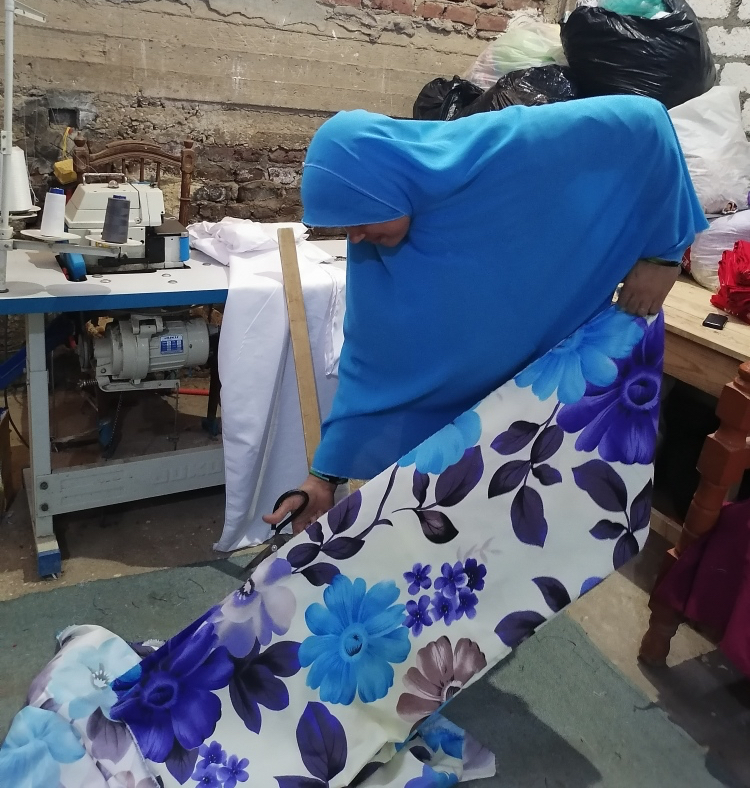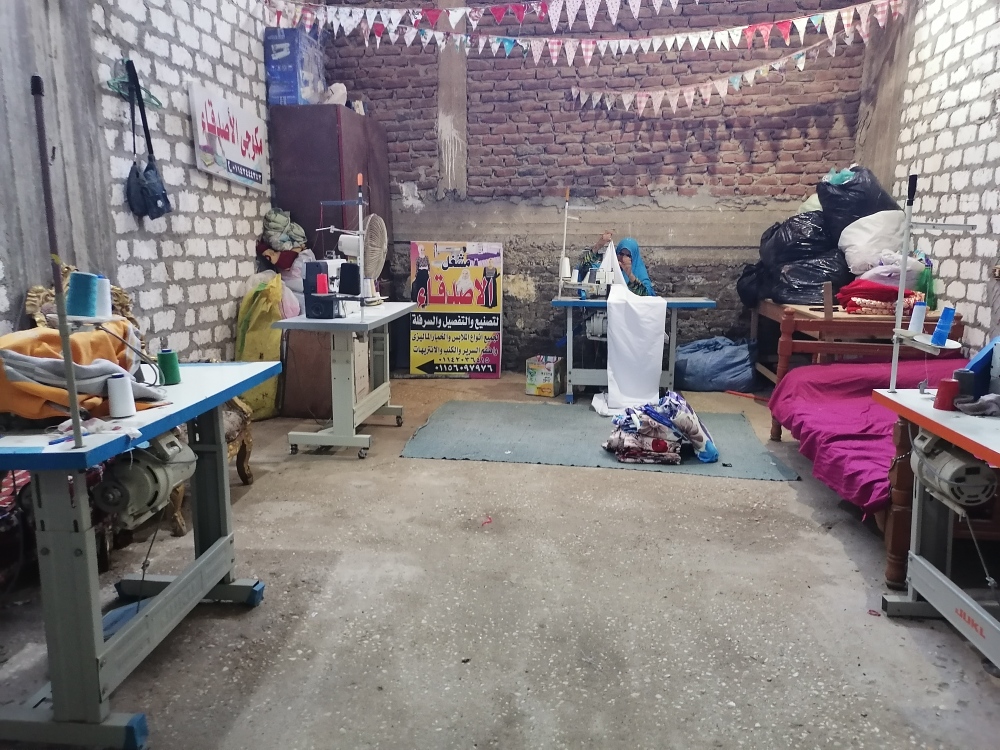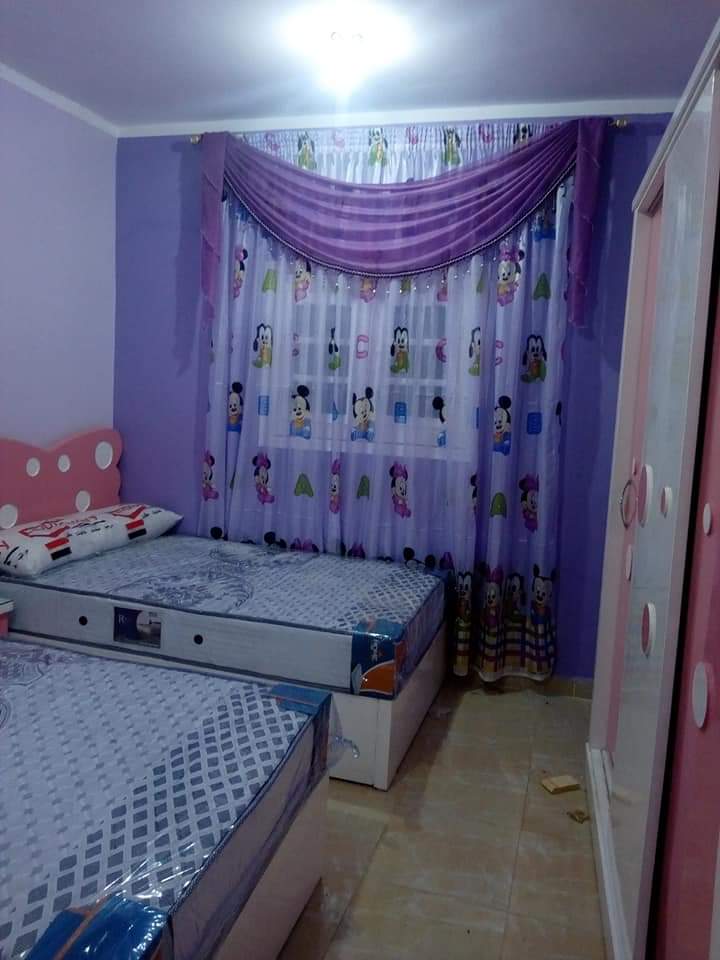August 27, 2022
Alexandra Kinias

Samia lives in the village of Abnoub in Assuit, Upper Egypt. As a girl growing up in a conservative society, her options are limited. In fact, she had none, not even a chance to go to school. She learned to read and write in adult literacy classes later in life.
Samia’s story began when her elder sister learned how to sew from a lady in their neighbourhood in order to fullfil the household basic needs. In conservative societies, where mobility and finances are limited, sewing clothes and beddings fall on the shoulders of women. The craft, and the sewing machine are passed down from one generation to the next.
Samia watched her sister sew from afar, and when no one was watching, she cut patterns from plastic bags and stitched fabric scraps. It was not until the elder sister married and moved away, that Samia had access to the sewing machine. A self-taught, Samia learned how to sew by watching her sister. Then with perseverance, diligence, trial and error, she mastered the craft.

Her passion for sewing grew and she wanted to become a seamstress. Her family rejected the idea of her starting a full-scale business. With some resistance from her end, they allowed her to work on a small scale. She taught the girls in her village how to sew, thousands of them, in fact. She knew she was skilled, and aspired to use her skill to achieve financial independence. She became famous in her village and the surrounding ones.
When Enroot Development -A social purpose enterprise- were conducting qualitative research on women employability in Abnoub, her name was mentioned by every woman they met. She had trained them all. In fact, Enroot realized that through her mentorship, Samia had contributed to the development of the informal sewing and tailoring sector in Abnoub. When Enroot team met her, they discovered the prevalence of the sector as an opportunity for female employment and entrepreneurship.
Accordingly, Enroot recommended sewing in its studies on Abnoub as a sector with growth potential and opportunities for development interventions.
After Samia got married, her husband gave her more freedom to follow her entrepreneurial dreams, Through an NGO, she applied and received a micro-loan to start a sewing business. Unlike her family, her husband encouraged her more to pursue her dream on a large scale. With the loan, she built a shop and equipped it with four sewing machines, with various functions.

Samia prides herself on being the first female business owner of a sewing workshop in Abanob. She has four full time women working with her as co-founders, in addition to several part time women. She had trained them all.
A believer in women empowerment, Samia prides herself that she had trained thousands of women, from her village and surrounding villages, how to sew. Women of all ages and marital status; young, old, single, married, divorced, widowed, and anyone who wanted to learn came flocking her place. She even trained many of them for free, to help them make a living for themselves. The only expenses they paid were for their transportation to her place.
Their products are seasonal, and vary from school uniforms, to bedding and curtains, to bridal trousseau, and everything in between. Samia manages all aspects of her business. She also deals with the various suppliers.
Moreover, she continues to set up sewing workshops to teach and train more women. Today, Samia has paid off her loan and is now enjoying the fruits of her hard work. She aspires to grow her shop, buy more machines, hire more women and help them reach their finances independence too.
Samia’s Business account on whats app: https://wa.me/message/D5OVJA7FWC6WB1
For more about Enroot Scope of Work: https://enroot.org/
** If you liked this article, don’t forget to subscribe to our newsletter and receive our articles by mail.






